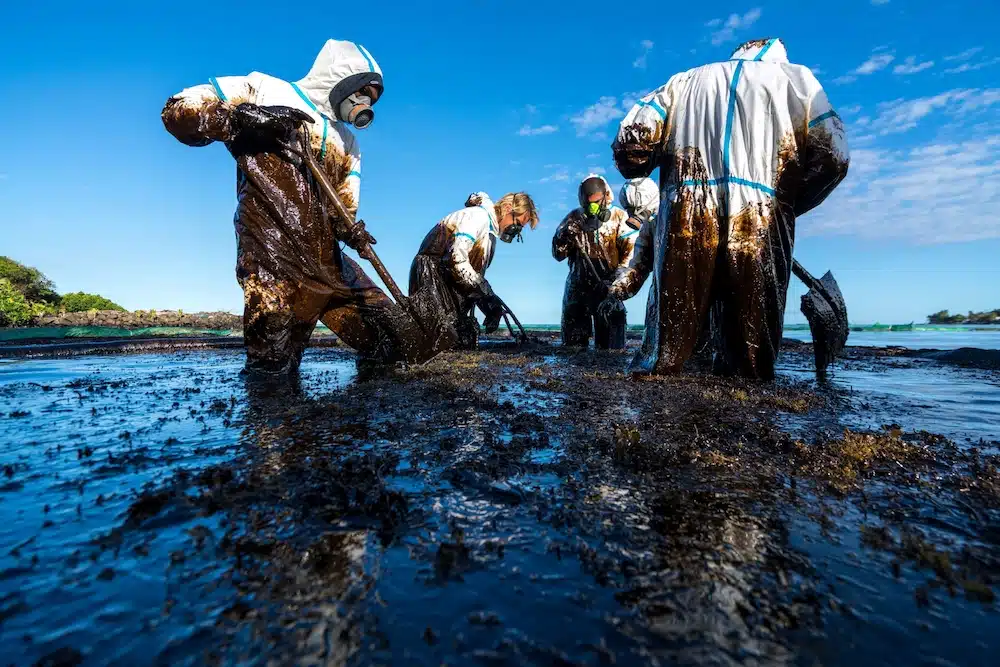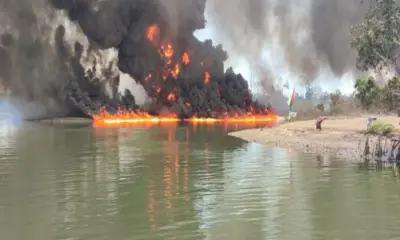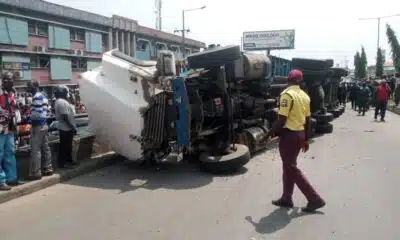In the oil-rich community of Ibeno, Akwa Ibom State, the once-celebrated blessing of oil has transformed into a devastating curse. The activities of multinational oil companies in the region have unleashed a wave of environmental, economic, and health hazards, leaving the community reeling.
“The water in Ibeno is contaminated with oil spills, making it impossible for us to access safe drinking water,” laments Rhoda, a passionate youth activist in the area.
She reveals the exorbitant cost of a sachet of water, which can fetch up to N100 while families who are unable to afford this steep price have no choice but to consume the oily water from streams, leaving them utterly helpless.
During a town hall meeting organized by the Environmental Rights Action (ERA)/Friends of the Earth Nigeria, Rhoda recounts the heart-wrenching tales of suffering endured by the people of Ibeno, particularly women who experience miscarriages and respiratory illnesses due to gas flaring.
Rhoda shares her personal tragedy, narrating how her pregnancy was lost as a result of inhaling polluted air while working in Ibeno.
“The rainwater collected from zinc roofs turns completely black, and even water from the ground is oily,” she reveals to a stunned audience.
“The elderly and children drink this contaminated water without choice. Some of the water is even green in color. Sachet water, which costs N20 in Uyo, is priced between N50 to N100 in Ibeno, rendering it unaffordable for most people.”
Amidst these distressing accounts, a Cameroonian fisherman residing in Ibeno, Kofi, expresses the dire consequences of oil spills on the fishing industry.
The continuous destruction of fishing nets and the depletion of fish populations due to oil spills have left the fishermen grappling with the loss of their livelihoods.
Kofi states, “Life is getting tough every day because we have already lost our means of livelihood. Our health is deteriorating, and the water collected during rains turns black, revealing oil particles beneath the bucket. It is only by the grace of God that we endure.”
Mrs. Beatrice Eja, the President of the Women Association in the Eastern Obolo community, highlights the recent oil spill in their region caused by an overflowing oil well. She reveals the devastating impact on aquatic life, farmland, and crops.
Eja expresses concern over the disproportionate suffering of women, particularly pregnant women, who face increased health risks and the potential for birth defects resulting from oil contamination.
Chief Moses Akpankpo, a fisherman from the Inuaeyen community, Ibeno Local Government Area, shares the history of recurrent oil spills in the region. Despite reporting multiple spills since 2008, no action was taken until 2022.
Akpankpo details the damage caused to his property, including his fishing equipment, as well as the contamination of crops, drinking water, and the entire environment.
Desperate for assistance, he pleads, “We need the outside world to come to our rescue.”
Dr. Ufot Phenson, President of the Akwa Ibom Oil Producing Community Development Network (AKIPCON), alleges that Exxon Mobil, the major oil company operating in the area, has consistently failed to compensate affected communities and remediate the environment after oil spills.
He condemns the company’s actions, stating, “Exxon Mobil never paid compensation to the victims who suffered losses. Fishermen, farmers, and allied businesses faced huge losses, leading to abject poverty and frustration.”
In response to the allegations, Exxon Mobil’s spokesperson, Ogechukwu Udeagha, denies these claims, asserting that the company has always been proactive in addressing issues when they arise.
Udeagha highlights the company’s contributions to the host community, including providing free electricity, and questions why their positive actions are not acknowledged.
However, the host communities and various Civil Society Organizations are strongly opposed to the divestment plans of Exxon Mobil and other multinational oil companies.
They demand that these companies remediate the environment, compensate impacted communities, and fulfill their obligations before departing.
The communities emphasize that leaving them in a state of disrepair after decades of environmental pollution and gas flaring is unacceptable.
Dr. Phenson highlights the broader issue of gas flaring in the Niger Delta, asserting that it has contributed to the acidification of rivers and soils, posing severe health risks and leading to food crises in the region.
Nigeria ranks among the top 10 gas flaring countries globally, with a staggering amount of flared gas in recent years.
Despite the Nigerian government’s efforts, such as the Nigeria Gas Flare Commercialization Programme (NGFCP) initiated in 2020, the deadline to end gas flaring was missed, and the practice continues unabated.
The people of Ibeno and surrounding areas continue to grapple with the hazardous effects, longing for a resolution that would bring an end to their suffering and restore their environment.









